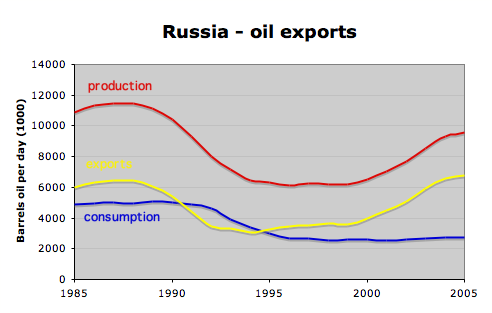It starts:
Rosneft has recently signed a series of big contracts for oil exports to China and is close to signing a “jumbo deal” with Indian companies. In both deals, there are no US dollars involved.
Reuters reports, that Russia is close to entering a goods-for-oil swap transaction with Iran that will give Rosneft around 500,000 barrels of Iranian oil per day to sell in the global market.
The White House and the russophobes in the Senate are livid and are trying to block the transaction because it opens up some very serious and nasty scenarios for the petrodollar.
If Sechin decides to sell this Iranian oil for rubles, through a Russian exchange, such move will boost the chances of the “petroruble” and will hurt the petrodollar.
It can be said that the US sanctions have opened a Pandora’s box of troubles for the American currency.
The Russian retaliation will surely be unpleasant for Washington, but what happens if other oil producers and consumers decide to follow the example set by Russia?
During the last month, China opened two centers to process yuan-denominated trade flows, one in London and one in Frankfurt.
Are the Chinese preparing a similar move against the greenback?
We’ll soon find out.

The US has, to use the phrase du jour, a great deal of “privilege” because the US dollar is the standard unit of trade, most significantly, trade in oil. If you get frozen out of the dollar, you get frozen out of a large part of the world economy.
American sanctions can virtually destroy a country, as banks, even non-American banks, won’t do business with a country the Treasury department has forbidden doing business with.
Breaking that—moving to a multilateral world, or to a world where trading in Yuan is just as acceptable, goes a long way to breaking American power.
In general, the Europeans will follow the US lead, so moving to the Euro provides no protection from America.

But moving to the Yuan and the Ruble, does.
Pricing large oil transaction in rubles also helps protect the Russian currency from large moves: if the ruble drops too much, people will go into it if you can buy oil in rubles, and the Russians are opening a futures operation as well, meaning traders can make that play, even if the US doesn’t like it.
Of course, the US could go harder in sanctions, making it difficult to take those winnings and get them back into dollars or Euros, but if the trade is large enough, Chinese and Oilarchy banks will clean the money and hide the flows.
London and New York will then want to get in on it, and will, through their offshore subsidiaries in various banking havens.
Note also the poke in the eye: the deal to take Iranian oil and sell it as Russian oil, bypassing the sanctions against Iran.
All of this is far more harmful to America’s real interests than any sanction the US has so far imposed on Russia.
By Ian Welsh, 4thmedia.org








